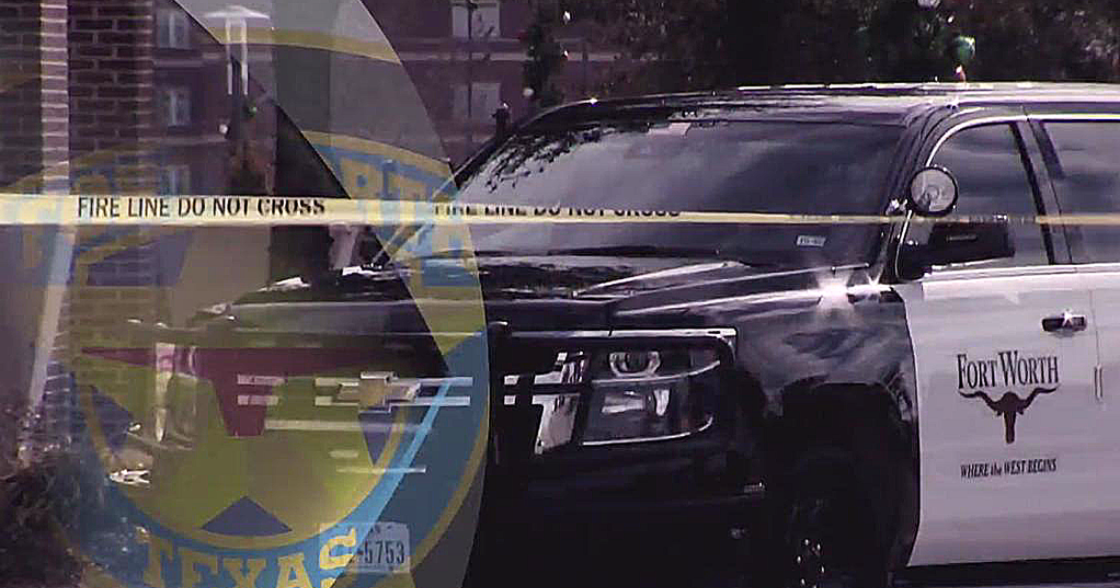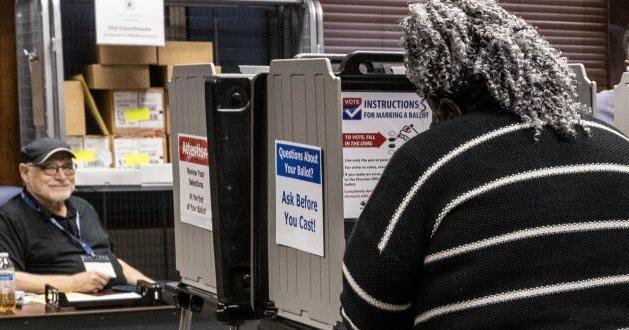
For most people, if your boss decides to fire you, that’s it. But at police departments that operate under the state’s civil service statute, the chief does not always get the final say about who stays and who goes.
Out of the nearly 2,800 law enforcement agencies in Texas, just over 100 follow Chapter 143 civil service rules, which set formal processes for hiring, promoting and firing officers.
At those departments, the chief’s disciplinary decisions can be appealed to an independent arbitrator, who holds what amounts to a mini-trial for the officer. The hearings, which are open to the public, include the introduction of evidence and witness testimony. How well that system works depends on who you ask.
Supporters say it ensures fairness
“Civil service is what offers everyone a level playing field. It gives officers due process,” said attorney Bob Leonard. He leads the Combined Law Enforcement Association of Texas, which provides legal help to officers who get in trouble on the job.
“There is just absolutely no other way to ensure that an officer gets a fair shot at clearing their name than to have somebody other than the chief, sheriff or constable looking out and making sure the facts fit what’s being alleged.”
Robert Gorsky, who represents officers on behalf of the Texas Municipal Police Association, agrees. “No chief likes civil service. [I have] never heard one that ever said, ‘Oh, I love civil service, or I love arbitration!’ They hate arbitration because obviously they’re being second-guessed.”
Critics say arbitrators lack expertise
Les Moore doesn’t see it that way. As a longtime legal advisor for the Irving Police Department, he believes the process gives too much power to people who he believes are “totally unqualified” to make a decision about police issues.
“I’ve had hearing examiners who have a master’s in mathematics or something, they’re teaching in a college, but they don’t know anything about use of force, they don’t know anything about search and seizure law,” Moore said. “And yet, they’re the ones overturning the decision of the police chief who’s got 30 years in the business.”
According to Leonard, while police chiefs are accountable to city leaders and citizens, arbitrators “have no skin in the game” when it comes to who should represent the police department.
North Texas cities under Chapter 143
Arlington, Carrollton, Cleburne, Coppell, DeSoto, Fort Worth, Lancaster and Mesquite are among the local Chapter 143 civil service agencies in North Texas.
The statute can also apply to firefighters and other city employees. A department can’t simply choose to be civil service; the statute requires municipalities to adopt the code, which is typically left up to voters. Only cities and towns with a population of at least 10,000 can adopt civil service rules.
Many law enforcement agencies say having civil service rules helps attract quality candidates — especially important at a time when many departments have struggled with recruitment.
Fort Worth officer wins job back
According to records obtained by the I-Team, a relatively new Fort Worth police officer won his job back this year.
Ruben Gastelum had been a patrol officer for about two years when he came under investigation in August 2024. That’s when the DEA raided his home as part of a drug trafficking investigation. The search turned up 22 pounds of meth, along with cocaine and marijuana. Court documents show agents were focused on Gastelum’s father-in-law, Adrian Esparza Saucedo.
Eight days after the raid, Gastelum took a drug test as part of the internal affairs investigation. Eleven days later, his urine sample came back negative, but his hair sample tested positive for cocaine. At the direction of his attorney, Gastelum went to another lab that day and took another hair and urine test, both of which came back negative.
During an interview in December, he told internal affairs detectives that his father-in-law had moved out of the house more than a year before, and that the drugs were found in a locked shed in the backyard to which Saucedo had the only key. When asked if he could explain how the drugs came to be at the location, Gastelum said, “I don’t know, I don’t have access to that shed.”
Internal records show Gastelum later admitted he had been inside the shed a week before the raid. He stored his police gun belt and bulletproof vest cover there before going on vacation.
Arbitrator overturns Fort Worth firing
Fort Worth PD fired Gastelum in January, a decision he appealed. A third-party arbitrator heard the case in March. At the hearing, FWPD said failing a drug test is grounds for termination, and that “retaining a police officer with a positive test for cocaine would erode the trust of the community.”
Gastelum’s attorney questioned the validity of the results and introduced a witness who said the officer could have been exposed to cocaine on the job. Two longtime Fort Worth police officers also testified that Gastelum had never shown signs of drug or alcohol abuse.
In the end, the arbitrator ruled in Gastelum’s favor, overturning the termination and reinstating him with back pay. The decision found that Gastelum had not violated any policies and would face no discipline.
Saucedo pleaded guilty to drug trafficking and is serving a 20-year sentence.
The I-Team reached out to Gastelum for a statement, but did not hear back.
Fort Worth PD declined an interview on the topic but provided this statement:
“The Fort Worth Police Department respects the legal and administrative process for appeals and the findings of the arbitrator. The Department remains committed to accountability, transparency, and community partnerships.”
Some reversals shielded from public view
It can be difficult to know how often police firings are reversed, because not all discipline is considered public information.
Internal investigations that involve suspensions, demotions, or terminations are available through open records requests. Everything else — written or oral reprimands, for example — is considered “g file,” a level of discipline that is not subject to open records requests. If a termination is reversed and no discipline is given, the case would be protected from disclosure by the police department. However, some cities will release civil service appeal hearing reports that include those kinds of cases.
Records obtained by the I-Team show 17 FWPD officers have appealed their firings in the last three years. Of those, nine won their jobs back. While most officers faced reduced discipline — unpaid suspensions of varying lengths — Gastelum was one of two officers completely vindicated.
Another officer reinstated after force case
The other was Matt Krueger, who made headlines when he was fired in 2024 for using excessive force on a local activist. Krueger appealed the decision and, in June, appeared in front of the same arbitrator who heard Gastelum’s appeal.
According to the arbitrator’s report, Krueger “believed, and had reason to believe, he was acting appropriately during the incident and that his conduct, including his use of force, was justified, within policy and within training.” The arbitrator overturned Krueger’s termination and awarded him full back pay.
The I-Team also reached out to Krueger’s union attorney for a statement, but did not receive a response.



